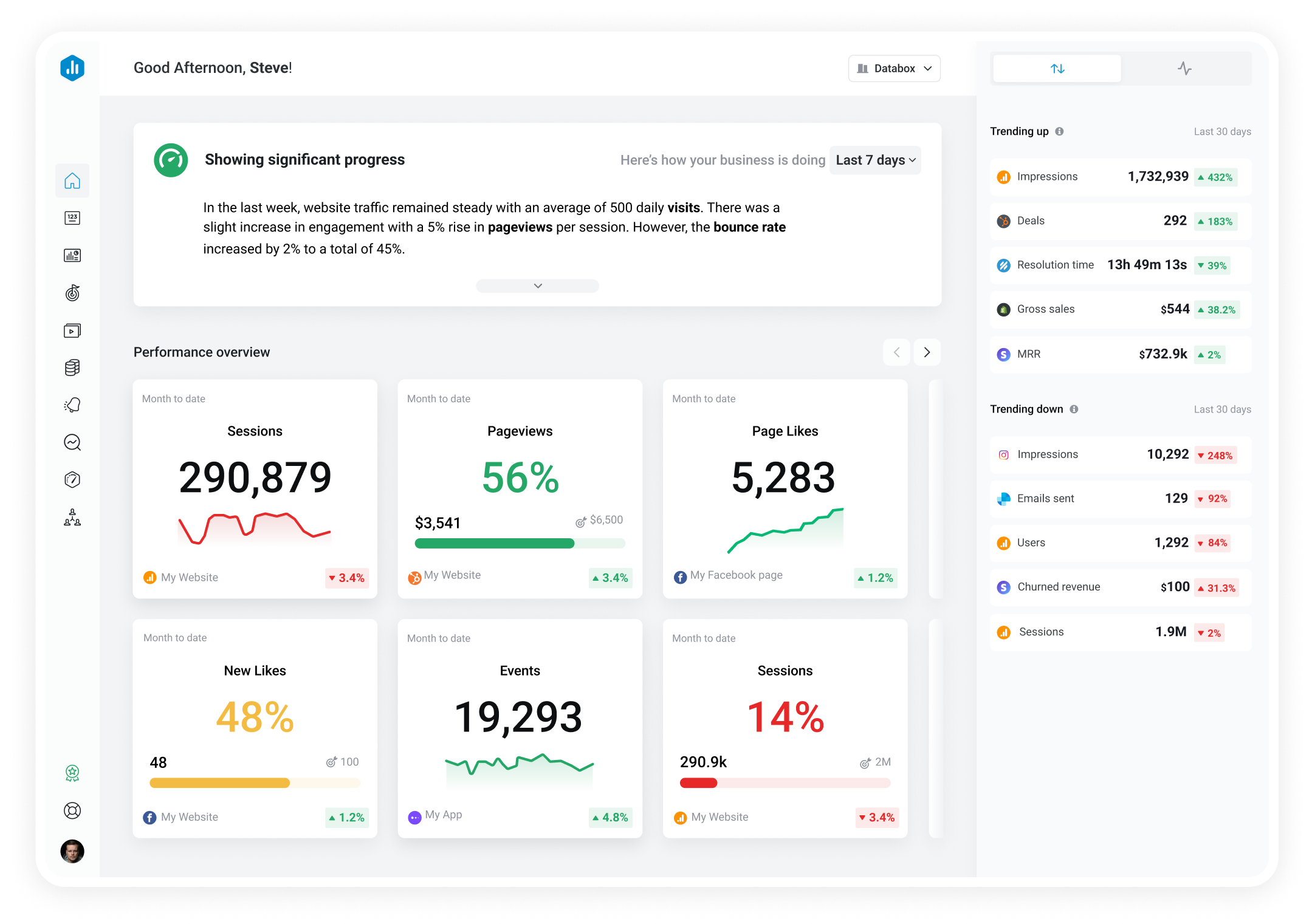Track all of your key business metrics from one screen
GET STARTED
 QuickBooks
COGS (Cash) by Product
QuickBooks
COGS (Cash) by Product COGS (Cash) by Product calculates the total cost of goods sold (COGS) for each product sold by a business. This metric helps to analyze profitability and optimize pricing strategies.
With Databox you can track all your metrics from various data sources in one place.

Used to show comparisons between values.
Databox is a business analytics software that allows you to track and visualize your most important metrics from any data source in one centralized platform.
To track COGS (Cash) by Product using Databox, follow these steps:
 Goals
Goals Scorecards
Scorecards Metric Digest
Metric Digest Metric Builder
Metric Builder Data Calculations
Data Calculations Performance Screen
Performance Screen